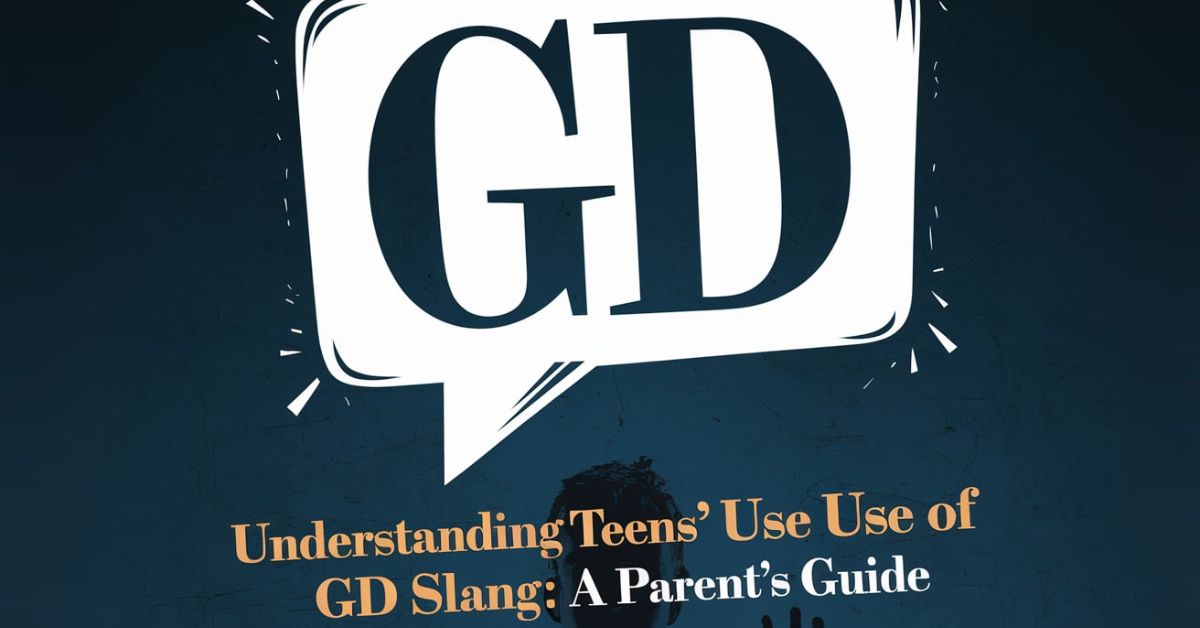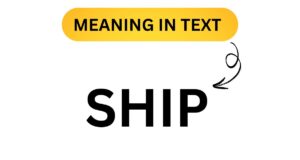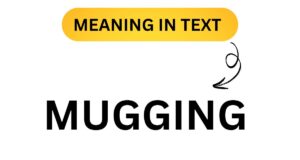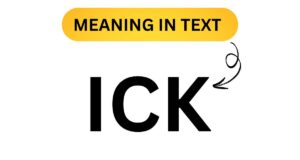So, there you are, scrolling through your teen’s social media feed or overhearing their conversations, and suddenly bam there it is: “GD.” Now, you’re probably thinking, “What does that even mean? And should I be worried?” Well, don’t panic just yet! You’re not alone.
Parents everywhere are trying to decode the mysterious language of teen slang, and “GD” is just one of the many terms that have infiltrated their vocabularies.
In this guide, we’ll walk you through what “GD” actually means, how teens use it, and what you should do if you hear it flying around in your household. Spoiler alert: It’s not as scary as it sounds, but it’s still worth a closer look.
What the Heck is GD?
First things first, let’s clear the air. “GD” stands for “God Damn.” Yes, that’s right. It’s a casual abbreviation of an exclamation that’s often used to express frustration, irritation, or, in some cases, pure amazement. Teens use it the same way they might use “ugh” or “seriously” when something really grinds their gears.
Now, before you start clutching your pearls and wondering if your teen has secretly joined a rock band and taken up cursing as a hobby, let’s break down how it’s actually used.
A Day in the Life of “GD” in Action
Let’s get real for a second: Your teen’s life is full of emotional highs and lows. And we’re not just talking about the usual teenage angst no, no. We’re talking about the intense daily struggles. From school assignments that never seem to end to arguments over the last slice of pizza, these little annoyances can feel like the end of the world. Enter GD.
Here’s a typical conversation that might take place between two teens:
Teen 1: “Ugh, I have so much homework to do. I’ll never finish it in time.”
Teen 2: “GD, me too! I’ve been working on this project for hours.”
Teen 1: “Tell me about it. It’s like they want us to fail or something!”
As you can see, “GD” is used as a way to emphasize how frustrating something is. It’s their way of letting off steam without going full-on meltdown mode. It’s not the end of the world, but it’s certainly a way to say, “I’m not happy about this right now!”
But Wait, Is It Really That Bad?
Okay, okay, we hear you. You’re probably wondering if this is a sign that your teen is about to start dropping F-bombs at the dinner table. Fear not! “GD” might sound intense, but in the world of teen slang, it’s actually pretty mild.
While it’s definitely a way to express frustration (and let’s be real, teens are frustrated about everything), it’s not usually meant to be taken as seriously as, say, some of the other colorful language out there. Think of it like a digital sigh. It’s there, it’s loud, and it’s a little dramatic but it’s not a cry for help or a sign of imminent rebellion.
When to Worry (And When to Chill)
As with all things teen, it’s important to know when to step in and when to just let things slide. If your teen uses “GD” in a casual, non-confrontational way, there’s usually no need to worry. It’s like them saying, “Ugh, this day is the worst.” It’s more about venting than anything else.
However, if you start hearing it more frequently, and it’s being used in a context that feels more aggressive or angry especially directed at people or situations it might be time to have a little chat. But don’t panic.
You’re not trying to call them out or make them feel like they’ve done something awful. Instead, frame it as a “Hey, I noticed this word popping up a lot. What’s going on?” conversation. Think of it as opening the door to understanding where they’re coming from, not as an interrogation.
Real-Life Scenario: What Does GD Really Mean to Your Teen?
Let’s take a moment to dive into some real-life scenarios where “GD” shows up. You know, just so you can be fully prepared for when it hits your ears next.
Scenario 1: The Homework Struggle
Imagine your teen has just come home after a long day at school. They’re exhausted. Their backpack feels like it weighs 50 pounds. And then you hit them with, “Hey, how was school?” Naturally, they respond with:
Teen: “Ugh, GD, it was the worst. I had to do three essays, a quiz, and a math test. Like, why do they hate us?”
You: “Sounds tough, buddy. You need help with any of that?”
Teen: “Nah, I’ll survive. But GD, it’s like they want me to fail.”
In this scenario, the GD is just them venting about their overwhelming workload. It’s an expression of exhaustion, not a call for a parental intervention. You can offer a sympathetic nod and maybe some advice, but there’s no need to get too alarmed.
Scenario 2: The Sports Rant
We’ve all been there, right? You’re watching a game, and your team is losing in the final seconds. The tension is unbearable. The next thing you know, your teen is yelling:
Teen: “GD, we lost by 3 points! This is the worst! I can’t believe they missed that shot!”
You: “Wow, that’s a tough loss. But hey, it’s just a game.”
Teen: “Nah, it’s not just a game! This was the championship!”
Here, “GD” is used to emphasize just how intense and dramatic the situation is. It’s all part of the teen experience drama, excitement, and yes, occasional hyperbole.
Should You Be Concerned About GD?
It’s important to note that slang like “GD” isn’t usually a red flag for deeper problems. In fact, it’s pretty common among teenagers and young adults. But if you start noticing that your teen’s language is becoming more aggressive or offensive, that could be a sign of something more serious, like stress, anger, or peer pressure. As always, if you feel concerned, a simple, non-judgmental conversation is the best way to go.
How to React as a Parent
Now that you’re armed with the knowledge of what “GD” really means, let’s talk about how to react. Spoiler alert: you don’t need to stage an intervention.
- Stay Calm: Teens are already dealing with a million emotions. Adding to the drama by overreacting will just make them shut down. Instead, remain chill and open-minded.
- Ask Questions: If you’re curious about their use of “GD,” ask what it means to them. You might learn something interesting (or at the very least, you’ll get to hear about their stressful day).
- Set Boundaries: If the language crosses into more offensive territory or is being used in inappropriate settings (like family dinners), gently remind them that there’s a time and place for everything.
- Be Supportive: Acknowledge their frustrations, but offer solutions. Maybe help them organize their homework or find new ways to vent stress like getting them involved in a new hobby or sport.
Conclusion
In the grand scheme of things, “GD” is just a word. It’s a way for your teen to let off some steam or express frustration. While it’s important to stay in the loop and understand what your teen is saying (because, trust me, the slang is only going to get weirder from here), it’s not something to lose sleep over. A little bit of “GD” now and then is not going to send them down a dark path.
So, the next time you hear your teen shout, “GD, this is annoying!” just remember: They’re probably just having a rough day, and that’s perfectly normal. Keep the lines of communication open, stay chill, and maybe offer them a pizza to ease their frustration. They’ll appreciate it.









